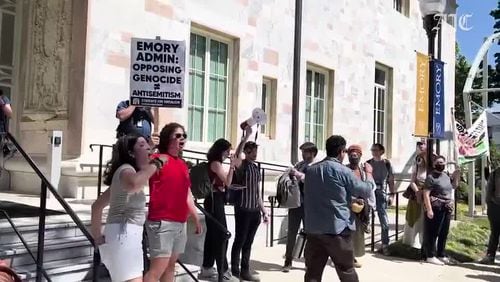John L. Glenn is an assistant professor of English at Atlanta Metropolitan State College.
By John L. Glenn
Many people, including administrators and faculty, wonder just what today’s minority college experience is really like. Most are well-meaning and want the inside scoop so they can determine how best to aid this demographic. Others want to be more culturally aware and objective when they interact with students whose social frames of reference may be at odds with higher education.
I’m discussing minority students in particular, but poor whites arrive to campus with similar socioeconomic backgrounds. The campuses I have in mind belong to two-year colleges and smaller four-year institutions. The main thread is their “access” feature, which is there to bring in students who may not have been 4.0 giants in high school, but are outliers with tremendous untapped potential.
Then there are middle-aged adults looking to gain job skills or change careers. But my favorite is probably the returning student who decided unskilled labor was a dead-end or that the vast university wasn’t hospitable — or they were just homesick.
All the same, there’s one prevailing irony that has found its way back to me every semester over the course of my decade of teaching freshman composition: many students perceive their families to be most detrimental to their education.
Sure, the college experiences of all students are increasingly riddled with challenges, financial, familial and otherwise. Community college statistics across the board bear this out. According to Complete College America, less than 20 percent of fulltime community college students in Georgia complete an associate's degree within three years. A different study points out that some of the other obstacles cited by students were problems relating to soft skills like balancing school and work and self-discipline.
When it concerns minorities, in particular, the Community College Survey of Student Engagement points to the sometimes overlooked importance of cultural competency in better serving students of color. As these data points indicate, there is a need for innovation across colleges in the ways these issues are addressed.
Up to this point, colleges have attempted to target first generation and first-time-in-college students. They have revamped gatekeeper courses and many have either scrapped altogether or overhauled developmental education. But what does it mean to be a first-generation, minority college student?
It means being in a peculiar moment that has a lot to do with disruption. College is an incredibly disruptive process for minorities. The reality is that small colleges in Georgia are probably just as blanketed with feelings of isolation as Ivy League schools.
Right off the bat, college might mean facing off with parents who are unintentionally hostile to the idea of college, but still want the best for their sons and daughters. It might involve quitting a job — making an already stressful financial situation even more precarious — to focus more on classes.
I’ve heard stories of students having to sit out a year because their parents simply refused to provide their tax documents. Others were forced to forfeit scholarships so they could remain “at home.” Really, for many, going to college is about more than just leaving the nest, which many don’t do; it’s like metaphorically taking an axe to the nest and signaling the family identity will never be the same.
I suspect many minorities in Atlanta enter higher education with little moral support. Few at home get it, and they are themselves on the fence.
This isn’t necessarily a recipe for disaster, but it certainly doesn’t create the context for students to fully take advantage of the opportunities college offers. And isn’t that the whole point. You shouldn’t be so mired in feelings of guilt that you can’t harness the full potential of a college education, not the mention the mental health implications.
One of things I appreciate most about community colleges is that because their funding literally hinges on retention and equipping students with the skills needed to function at college level and ultimately graduate, many are committed to engagement and support. Books like "The First Year Out" and "The Purposeful Graduate" -- and a host of others -- tell us about the practical ways they learn to manage college life and the need for colleges to shift from a rigid focus on career training.
Perhaps, minority college students need an institutional focus similar to what veterans are provided on campuses across the country. There are numerous Adjustment-to-College and Transition and Retention programs out there, but new student orientation is really the first line of defense when it comes to the family resistance many students will face.
Colleges should retool orientation programs to focus on informing students more about opportunity and less about policies and test-taking strategies. For example, one approach is for orientation to take on a more practical focus, to facilitate discussions about socioeconomic mobility and the institutions that make it possible.
In this format, questions like "What opportunities are available beyond nursing or majoring in business?" or "Where is my family situated socioeconomically?" or "How much money do I need to earn to live well in Atlanta?" will surface. Question and answer sessions will help students arrive at a deeper understanding of what it means to be a college student and then take ownership of that identity. And there’s also the added bonus of useful qualitative data that comes out of this approach.
To overcome family resistance, colleges must socialize students to the idea of utilizing institutions like small colleges to take advantage of larger opportunities in society.
About the Author







